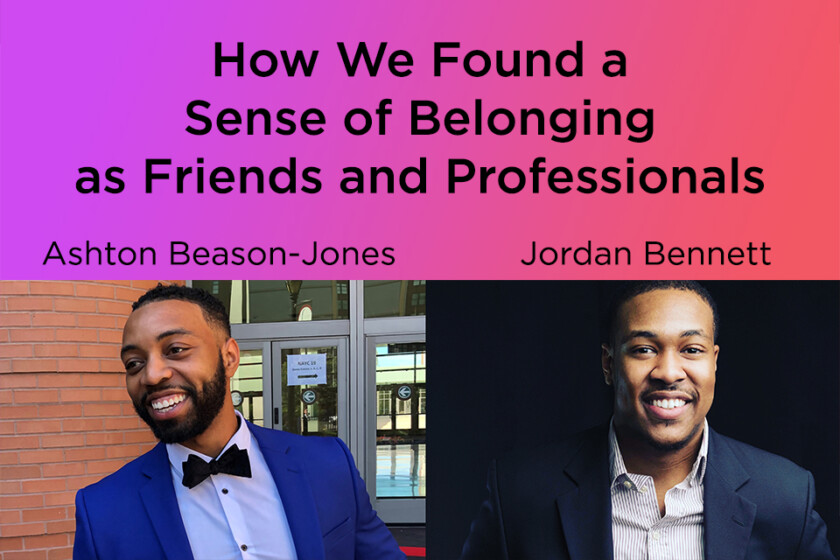
Ashton Beason-Jones ‘11 (CLAS) and Jordan Bennett ‘11 (CLAS) began their personal and professional relationship as fellow roommates and political science majors. During their time together at UConn, they learned the value of finding a sense of belonging, especially as two Black, first-generation college students. Finding that same sense of belonging after college can present new challenges, but Ashton and Jordan give sage advice on finding companies and fellow professionals that will support you the way you need.
“Growing up, being a first-generation college student, being a West Indian… my mother always told me that to be successful, we have to do double the work.” This left Ashton wondering, “Am I not as good as my counterparts?” Jordan echoes this sentiment, saying, “As someone who is Black and Queer, I’ve struggled a large part of my career figuring out where I fit in.” Both men elaborated on how they combated that feeling of not belonging. For Jordan, it’s recognizing that “I belong in any room I enter, and so do you.” Find what motivates you and how others might share that motivation. For Jordan, it’s “Making a difference or having a positive impact” that gives him confidence in any room. For Ashton, it’s recognizing that “There’s never the perfect fit. It’s the ability to know that I can add value to this room.” Find how you can add value regardless of whether you’re perfect for the room you’re in. Once you have identified your value, it is important to assess if a prospective employer’s values align with your own.
“It’s something that is obviously super personal that everyone should assess for themselves,” says Jordan. “The biggest driver for me is do I align with the mission? Is this a good cultural fit for me?” We all have different backgrounds, but Jordan asks himself such personal questions as, “Is my Blackness appreciated and respected? Or is there an expectation that I’ll be the voice for the Black race or the LGBTQ community? Is that something I want?” Ashton advises “going on LinkedIn, trying to find people there, connecting with them, asking questions of people in that organization” to get the inside scoop of what the culture is really like.
Another important thing is to determine whether a company is sincere to its Diversity, Equity, and Inclusion mission. “You can be comfortable asking about it,” Jordan says. Ashton adds that “you can ask those difficult questions, and based off those questions, you’ll be able to identify where they actually stand.”
Our full conversation with Ashton Beason-Jones and Jordan Bennett is available on our YouTube channel. Click the play button below to check it out!
